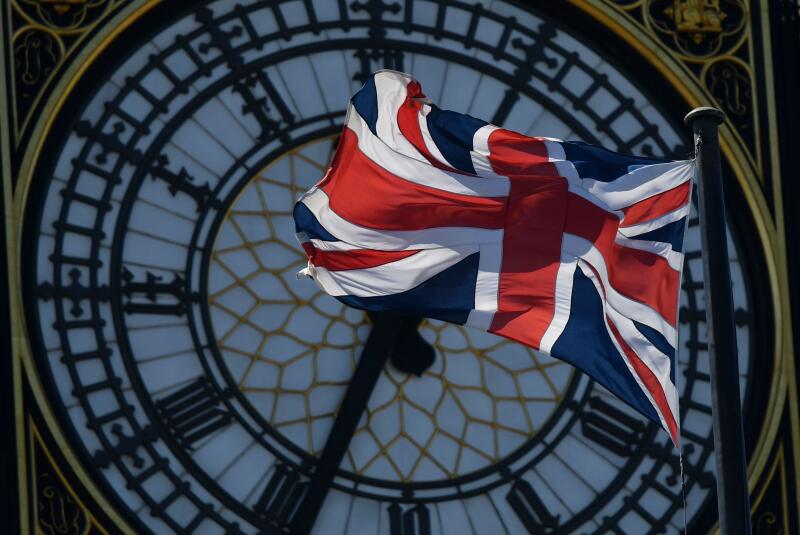Big expansion of nuclear weapons stockpile and tilt towards Indo-Pacific in major UK defence paper
Sign up now: Get ST's newsletters delivered to your inbox

Britain believes it can help persuade China to play by the rules of a new, more dynamic international system via soft power and strategic alliances.
PHOTO: AFP
LONDON - Britain unveiled the most comprehensive defence and diplomacy strategy paper since the end of the Cold War more than three decades ago by announcing a significant expansion in the country's stockpile of nuclear weapons, as well as a substantial tilt towards the Indo-Pacific region.
"I am profoundly optimistic about the United Kingdom's place in the world, and our ability to seize the opportunities ahead", Prime Minister Boris Johnson told parliament in London as he released the 100 page-long strategy document entitled "Global Britain in a Competitive Age".
But the main opposition Labour party hit back by charging that there is a "yawning gap" between the UK government's claim that it represents a nation standing up for "the rule of law" in the world, and the reality of Britain's behaviour.
Soon after winning an unprecedented majority in the December 2019 elections, Prime Minister Johnson promised to conduct a thorough reassessment of his country's security and foreign policy priorities. The exercise was dubbed as an "integrated review" because it sought to assess all of Britain's strategic challenges and match them against available resources.
Some of the findings in the new strategy paper are predictable: the bulk of Britain's military resources and attention will remain concentrated on Europe, and particularly on what the government in London perceives as the threat from Russia, following the attempted poisoning of former Russian double agent Sergei Skripal and his daughter on British soil three years ago.
Reacting to domestic challenges such as demands from nationalists for Scotland's independence from the United Kingdom as well as political troubles in Northern Ireland, the report is also trying to recast Britain's heightened global profile as a justification for keeping the country together.
"The ingenuity of our citizens and the strength of our union will combine with our international partnerships, modernised armed forces and a new green agenda, enabling us to look forward with confidence as we shape the world of the future", Prime Minister Johnson told MPs.
In a radical departure from the past, however, the strategy document outlines an ambitious redirection of priorities towards Asia.
"The UK will deepen our engagement in the Indo-Pacific, establishing a greater and more persistent presence than any other European country", the strategy paper promises. "Japan is one of our closest strategic partners, including on security, and we are committed to deepening this partnership. We will look to cement our ties with South Korea and other regional powers such as Indonesia, Vietnam, Malaysia and Singapore".
In an unusually detailed chapter in the strategy paper boldly entitled "The Indo-Pacific Tilt", the British government states its objective of becoming "the European partner with the broadest and most integrated presence in the Indo-Pacific - committed for the long term, with closer and deeper partnerships, bilaterally and multilaterally".
The commitment will include "both sustaining and supporting bilateral and multilateral partnerships in the region, such as the Five Power Defence Arrangements and working with organisations such as Asean and the Pacific Island Forum", the paper adds.
Still, in setting out defence priorities, Britain's strategic review is casting China in less hostile terms than the language it reserves for Russia: while the Russians are treated as an adversary, China is characterised as a "systemic challenge" which should be countered, not necessarily with military means but by transforming the United Kingdom into a "science and tech superpower" by the end of the decade, as Mr Johnson told MPs in London.
Yet by far the most surprising development in the paper is Britain's announced intention to increase its stockpile of nuclear warheads from 180 to 260, an unprecedented boost of around 40 percent in the country's total nuclear arsenal. And, just as significantly, the British government has now removed its self-imposed cap on the number of nuclear warheads that are deemed as "operational" and can therefore be fired at any given time.
The initiative is unlikely to change much in the global balance of nuclear weapons. But it is an indication of Britain's determination to remain a key nuclear player, as well as a response to changes in the Chinese and Russian nuclear arsenals, and the risks of wider nuclear proliferation to North Korea and Iran. Simply put, the British want to make sure that they have enough warheads to respond to any eventuality.
Keir Starmer, Labour's leader, criticised the expansion of the nuclear arsenal, charging Prime Minister Johnson with failure to detail the "strategic purpose" of such a move.
But Mr Starmer also demanded a harder stance towards China, accusing the British government of "turning a blind eye" to Beijing's human rights abuses.
Either way, with an extra £16.5 billion (S$30.8 billion) worth of spending allocated to the military over the next few years, Britain is set to remain the fourth biggest defence spender in the world. London is clearly determined to put muscle into its strategy pledges.


